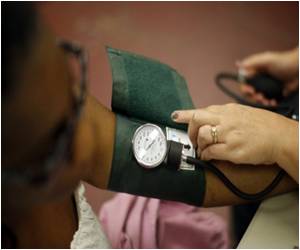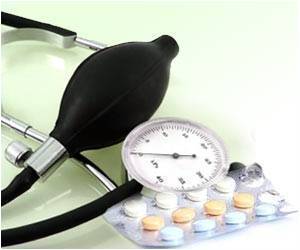Results of new Johns Hopkins-led research shows that black patients preoccupied with racial concerns have higher blood pressure than those who aren't.

"A preoccupation with race among blacks leads to hyper-vigilance, a heightened awareness of their stigmatized status in society and a feeling that they need to watch their backs constantly," says Lisa A. Cooper, M.D., M.P.H., a professor in the Division of General Internal Medicine at the Johns Hopkins University School of Medicine and senior author of the study described online in the American Journal of Hypertension. "African-Americans have higher blood pressure, and it has been difficult to explain why this is true. It doesn't appear to be genetic, and while things like diet, exercise and reduced access to health care may contribute, we think that a tense social environment, the sense of being treated differently because of your race, could also possibly explain some of what's behind the higher rates."
Cooper says the issue of such hyper-vigilance and race consciousness has drawn more public attention in the wake of the killing of Trayvon Martin, an unarmed black teenager, in Florida. Her own African-American son, she says, is very aware of his surroundings.
"It's stressful for him to walk around thinking at anytime someone might think he's dong something wrong just because of his race," she says. "That's just something he lives with. If you don't live with it, maybe it's hard to understand it. It's something people often don't want to talk about."
As part of ongoing research into doctor-patient relationships and racial disparities, Cooper and her colleagues surveyed 266 patients in urban health clinics in Baltimore between September 2003 and August 2005. Sixty-two percent of the patients were black. To test for race consciousness, they used the 2002 Behavioral Risk Factor Surveillance System "Reactions to Race" module developed by the U.S. Centers for Disease Control and Prevention. Patients — both black and white — were asked how often they thought about their race.
Two categories were created: Those who said they ever think about their race and those who said they never do. Half of the black patients responded that they "ever" think about it, and one in five white patients said they did.
Advertisement
Cooper, director of the Johns Hopkins Center to Eliminate Cardiovascular Health Disparities, says it is well known that chronic stress can increase blood pressure. Similarly, she says tasks that require active coping efforts may increase heart rate and systolic blood pressure, while tasks that require quiet attentiveness and vigilance may lead to decreased cardiac output as well as increased diastolic blood pressure.
Advertisement
"Given the socially dominant status of whites in the United States, higher levels of race consciousness could reflect greater awareness of white privilege," the authors note in the study. "Another explanation, particularly among whites who reside in areas with a high black population, is that race consciousness reflects a heightened fear of victimization, an anxiety-provoking stressor. Scholars of critical race theory are still debating whether race consciousness enhances or adversely effects the health of whites."
Cooper notes that it can be stressful for black people to go shopping in a store and feel they are being watched extra closely. Equally stressful, she says, is for example, waiting a long time to be served at a restaurant, and being ignored, possibly because of one's race.
More research is needed to understand the biological consequences of race consciousness, including those related to stress, she adds, with a goal of developing interventions to help people effectively cope with environmental stressors.
"We need to help people of all races cope with race-related stress in a healthier way," she says.
Source-Eurekalert















